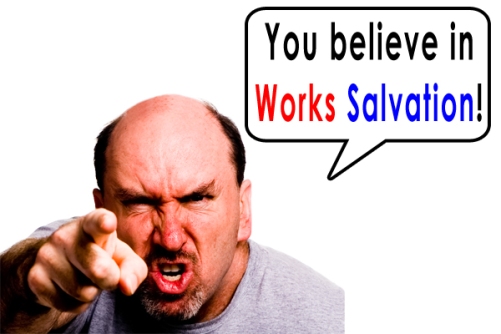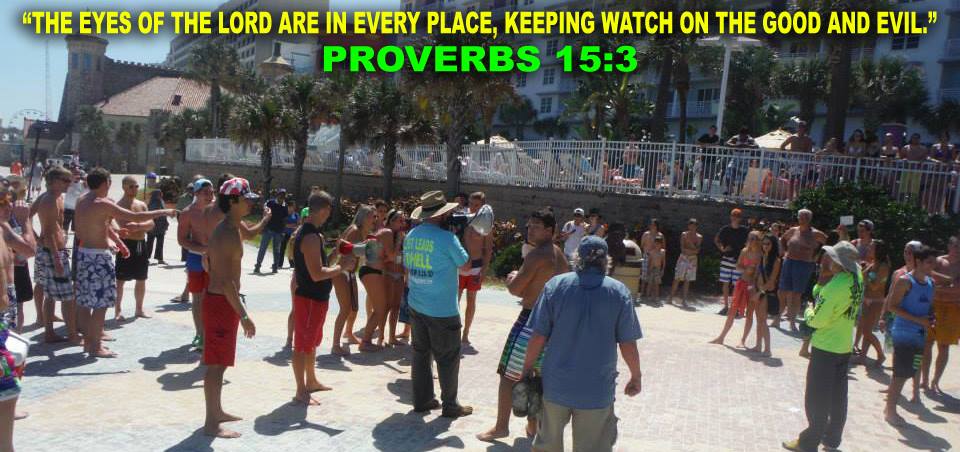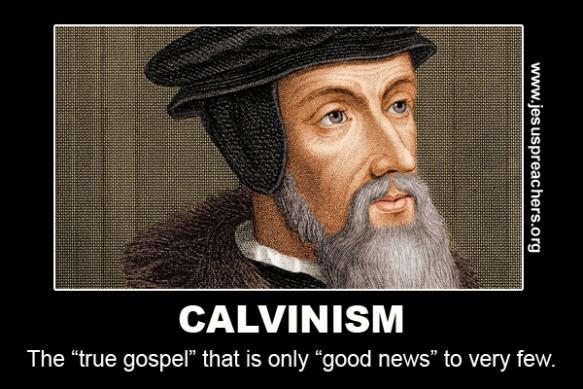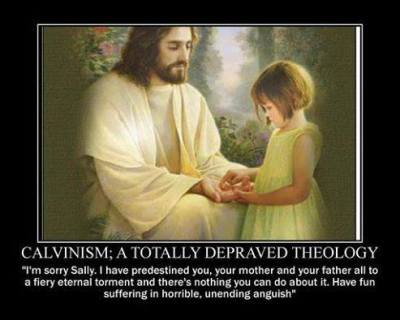
Quite often, I get accused of believing in “works salvation”. This is not to be unexpected, in this age of apostasy. False doctrine and false teachers are abounding all around us. Much of this is happening under the guise of being “true Christianity”. Because of all of this, many people don’t even understand what the writers of the Scripture mean, when they use the term, “works salvation”. Usually, people believe one of the following four definitions, for “works salvation”:
1) “Works salvation” is saying that you have any part in your salvation at all. In other words, if you believe in free will, then you believe in “works salvation”. If you believe that YOU did the repenting and YOU did the trusting in Jesus Christ, then that is “works salvation”. If you believe in “synergism”, then you believe in “works salvation”. This is the position of the Monergist or the Calvinist (at least, most of the ones that I have talked to). They’ll often quote John 6, Romans 9 & Ephesians 1, giving their Calvinistic interpretation of them.
2) “Works salvation” is saying that you must repent of your sins, in order to be saved. All you need to do to be saved, is “believe in Jesus” (they’ll quote Romans 10:14-15 for you). Saying that you must turn from your sins to be saved, is “works salvation”, even though they believe that you must turn from at least one sin (unbelief), in order to be saved. This is the position of antinomian or typically the King James Only Fundamental Independent Baptist (I have absolutely nothing against the KJV Bible).
3) “Works salvation” is saying that you are responsible for “maintaining your salvation” or “staying saved”. In other words, if you say that you can “lose your salvation”, “depart from the faith”, “be cut off”, etc., then you believe in “works salvation”. If you believe that you must live a holy life to be a true Christian, then you believe in “works salvation”. This is the position of anyone who believes in any form of unconditional eternal security, once saved always saved or perseverance of the saints. Some Calvinists may say that you “need to live holy” to be a Christian, but that is just double talk, since they say that we “all sin everyday, in though, word and deed”.
4) “Works salvation” is saying that committing sin can cause you to “lose your salvation”. Only “completely rejecting Jesus” can cause you to “lose your salvation”, but “sin” can’t. This is the position of SOME people who call themselves Arminians (NOT all of them).
Continue reading →








